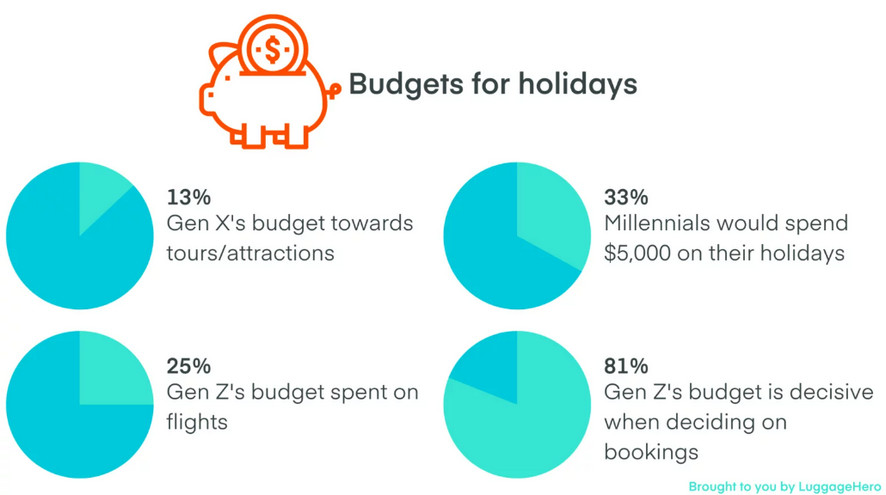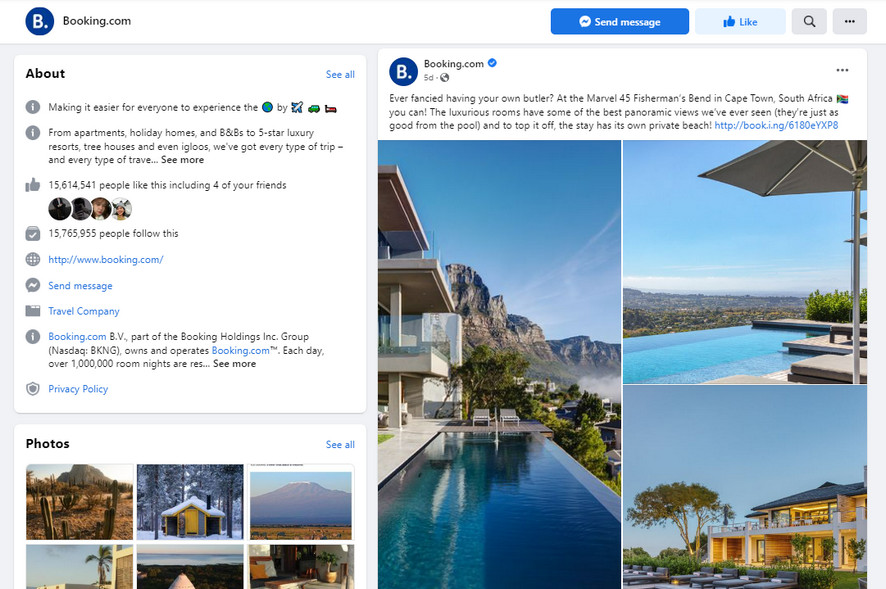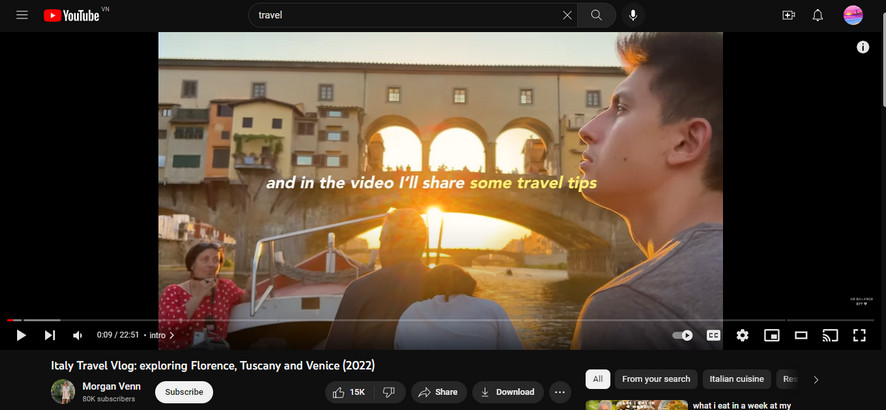6 Brilliant Tips to Promote Travel Agency Website on Social Media
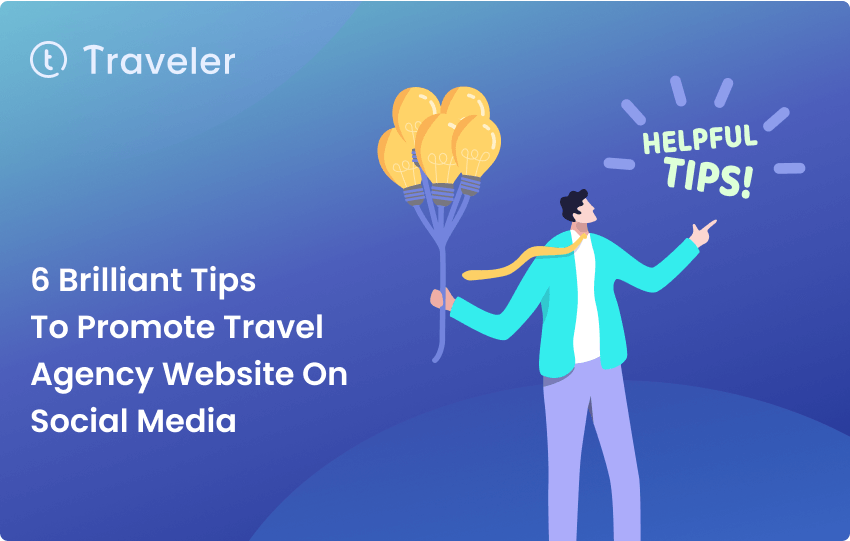
As the world becomes more digital, social media has become an increasingly important tool for travel businesses of all sizes. A few years ago, the most common question was “Why should travel agencies use social media?” Now, the question is “How to promote travel agency website on social media effectively?“
A tourism website is probably your best way to bring in new customers and persuade them to book their next vacation with you.
But if customers can’t easily find your website, it might as well not be there. So, you should make sure that people can find your website on social media sites where they are actively looking for travel information.
We know this can be hard, but if you follow the advice in this post, you can help your website get more visitors and customers. And there are a lot of ways to promote travel agency website in our blog that you can red
Here are six easy ways to market your tour operator business and make it a success.
Tip #1: Identify your target audience

Who are you trying to target with your social media efforts? What are their demographics, interests, and needs?
The first thing you should do to make a good social media marketing plan for your travel agency is to know who your ideal customer is.
We know that giving your audience rich context takes time, work, and research, but there are steps you can take right away to get off on the right foot. By doing this, you can find out exactly what your audience wants and then create a content strategy that will be useful for a long time.
When you’re trying to figure out who your target audience is, it can help to think about who is most likely to buy your travel services.
What sorts of demographic or psychographic data do they fit into?
What patterns are there that you can see?
The answers to these questions can help you not only make your first plan for promoting your travel website but also figure out what kind of voice and tone your potential customers will respond to best.
And you should know the following about your target audience in the travel niche:
- Age
- Location
- Gender
- Average income
- Typical job title or industry
- Travel preferences
- Relationship status
- Favorite websites to visit
- Motivation to travel
The purpose of this step is to give you a rough idea of what kind of visitor is the easiest to turn into a paying customer. It doesn’t have to be perfect, so don’t worry if you aren’t sure about some answers. Just go with what you think is best!
Once you know who your ideal customer is, you can start making travel content and messages that are just for them. This will help you cut through the noise and get to the right people in your travel major.
Tip #2: Choose the right social media platforms

Which social media platforms will best help you achieve your goals?
Traveler is the best WordPress travel theme for your promoting travel service via social media flatform. Because It’s easy to make a mistake when you first start using social media to promote your travel agency website.
- Putting yourself out there on too many platforms. You might think that you need to be on every social network to reach your target audience, but that’s not true. It’s more important to build a strong presence on a few key networks.
- Using the same approach on all of your social media sites: Each network has its own strengths and features, so your content and approach need to be different for each one.
For instance, Instagram is great for photos and videos, while Twitter is great for quick updates. If you try to treat each channel the same, you’ll miss the mark on all of them.
We all know that there are a lot of social media sites, and it can be hard to choose which ones to use to promote your travel agency. Because of this, it’s very important to know the pros and cons of each channel and how your customers use each one.
Now, for the sake of this article, we’ll talk about a few of the most popular social networking sites. But this is not the whole list!
Instagram is a powerful marketing tool for travel businesses because it lets them connect visually with a large number of people who are already interested in travel and tourism.
Instagram is different from Facebook in that travel agencies can get good results without having to pay for ads or influencer marketing. However, if a business has the money for it, advertising on Instagram and marketing through travel influencers can be effective ways to reach even more people.
Also, almost half of Instagram’s users are between the ages of 18 and 34, which shows how popular it is with younger people.
Because of this, it is a great platform for travel agencies that want to reach millennials and Generation Z. Travel businesses can share photos, videos, tips, and tricks on Instagram that can be found using hashtags.
Also, Instagram Stories and Instagram Live give businesses the chance to share content that disappears after 24 hours. This can be used to test out ideas or show followers what goes on behind the scenes when your travel services are running in real time.
Facebook is one of the most popular social media apps in the world, and it has a number of benefits for businesses that are hard to find elsewhere. With its huge database of information, you can send ads to people who are likely to buy from you.
It has great features like a Facebook shop, customer reviews, and a popular feature called Messaging. So, it’s not surprising that Facebook is known as a great way for travel agencies to market themselves.
Even though Facebook could be a great way to promote travel agency websites, the biggest problem is that unless you pay to boost your posts, they won’t reach very many people on their own. So, if you want to use Facebook as part of your social media strategy, it’s important to think about the pros and cons.
Tiktok
People spend an average of 30 hours a month on TikTok. TikTok seems like a good place to advertise your tour operator as it is becoming more and more popular. Also, this social channel is getting a lot of attention right now, and their #travel hashtag has already been seen by billions of people. Just wait until your company jumps into this cake.
TikTok is a great social media platform to use if you want to reach young people. Up to 62% of the people who use TikTok are between the ages of 10 and 29.
From that, a travel or tourism business should market to Gen Z for a few reasons. The most obvious is that the teens of today are the travelers of tomorrow. Also, it’s important to know that 75% of parents let their kids help plan the family vacation.
In the past few years, we’ve seen a growing number of older people join in on the Tiktok. This shows that travelling is becoming more popular among millennials who have money to spend right now.
Youtube
If you run an online travel business, YouTube is a great way to reach the people you want to do business with. YouTube is the second most-visited website in the world, with more than 4 billion active users every month. With a 42.9% share of the global market, there is a lot of potential for your business on YouTube.
So, make sure to use this platform to your advantage by making interesting and useful travel videos that will help your brand grow. Here are some different kinds of YouTube videos you might want to think about:
- Travel services demos
- Tips, tricks, and how-tos for traveling
- Destination, and reviews of food in the area
- Vlogs about travel plans
- Videos with interesting facts
Twitter is another great place to help customers and talk to people who follow you. Even if you use Facebook, having a Twitter account for customer service is still a good idea. You can use Twitter to keep up with news and trends in the travel industry.
The hashtag feature of Twitter is also great for getting the word out about travel content. You can join conversations by using popular hashtags in your field, like #travel and #tourism.
Last but not least on this list, LinkedIn is a powerful social media site that professionals in the travel industry should not overlook. LinkedIn may not be as flashy as Instagram or have as many users as Facebook, but it is a great place for travel agents to find a community of business people who work together.
Tip #3: Create engaging and shareable content
What kind of content will keep your audience’s attention?
If you’re not sure what to post on social media, make sure your posts fit with what each network is meant to do. When making your content, you should think about both the network and your goals.
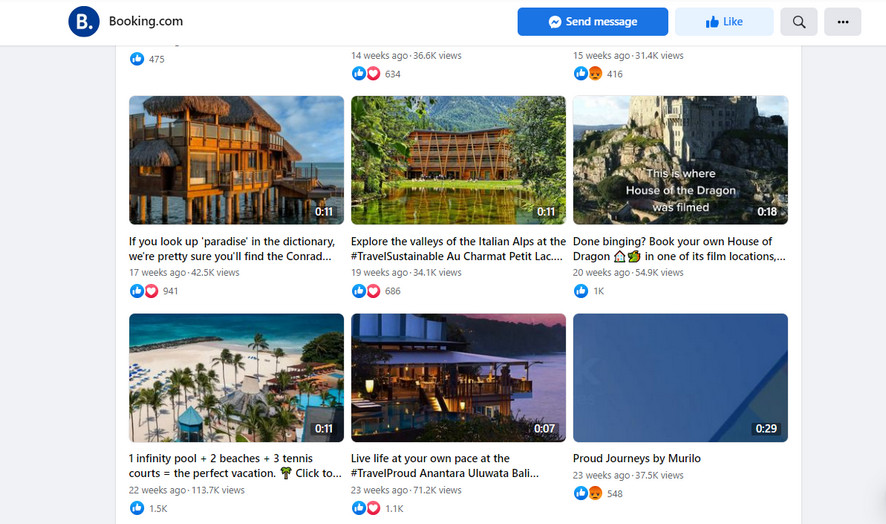
To get you started, here are some ideas for travel content on social media in 2023:
- On Facebook, you can tell people about special deals on travel products, news about your company, or fun facts, tips, and advice about your business
- On Twitter, you can tweet links to your latest travel blog and trends posts, retweet interesting articles, or start a conversation with another company in your industry.
- On Linkedin, you can share news about your travel agency, new products, or articles from your travel blog
- With Instagram, you can share photos or videos of your travel services in popular tourist spots, behind-the-scenes shots of your team at work, or motivational quotes that are related to your business.
Most interestingly, don’t forget to host contests or challenges to get people to make their own content. Your customers will be more likely to talk about your contest on their social media accounts, which could help your content go viral on many different sites.
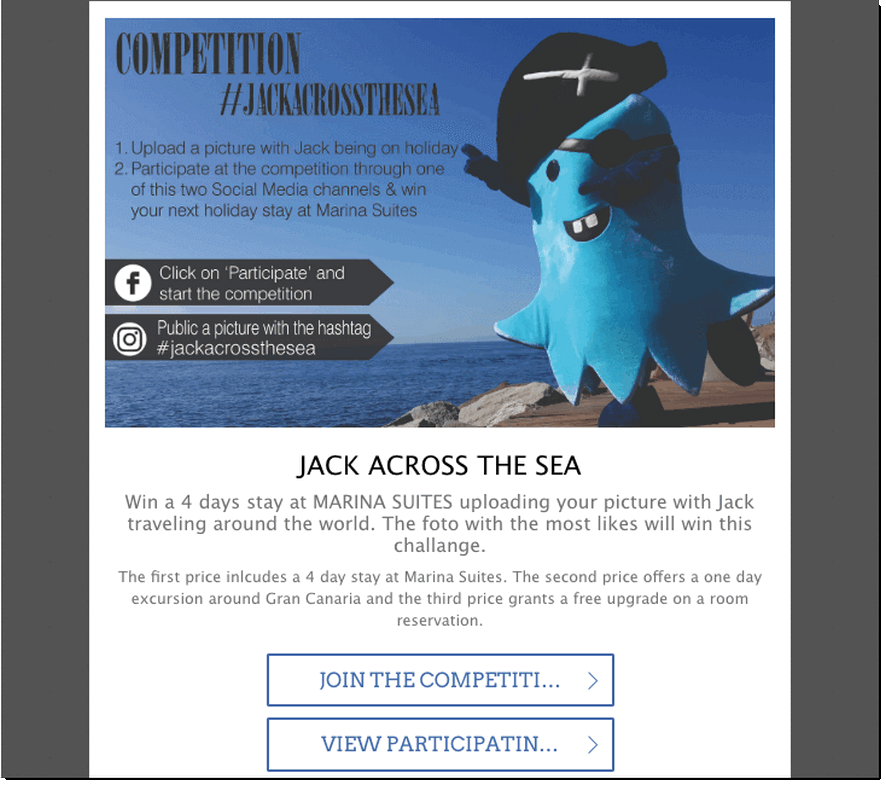
Overall, we know that it might take a long time to figure out what kind of content works best on which kind of network. Just like you would try out different recipes in the kitchen, you should try out different content strategies on each platform before you find what works best.
Be ready to update this section often so you can find the best way to connect with your audience on each channel.
Tip #4: Interact with your followers
Do you respond to your customer reviews and comments?
Social media is all about building relationships and interacting with your audience, right? So, if you want to connect with your followers on a deeper level and reach more people, you must interact with your followers. You can act as a guide for your audience, helping them plan a successful trip while also promoting your travel agency.
By actively listening to potential customers’ questions, such as trip details, costs, and length, you can easily gather the necessary information, tailor it to their needs, and get back to them quickly. The more you listen and answer their questions, the more likely they are to trust your tourism company.
Also, it’s important to respond quickly to any mentions of your travel business on social media and to respond to comments in a positive way. If you come across negative comments, try to solve the problem by explaining your policies or trying to understand the customer’s point of view.
Show your customers that you are active and engaged on social media and that you are always looking out for their best interests.
Just look at how Booking.com handles this comment immediately on the same day:
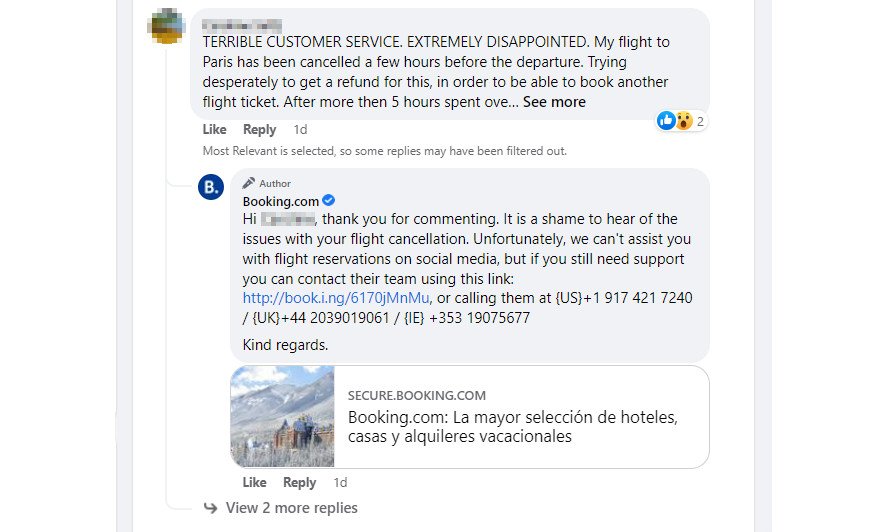
And if there are positive comments, you should leverage these customer testimonials as social proof to market your travel business on social media.
Take a look at this:
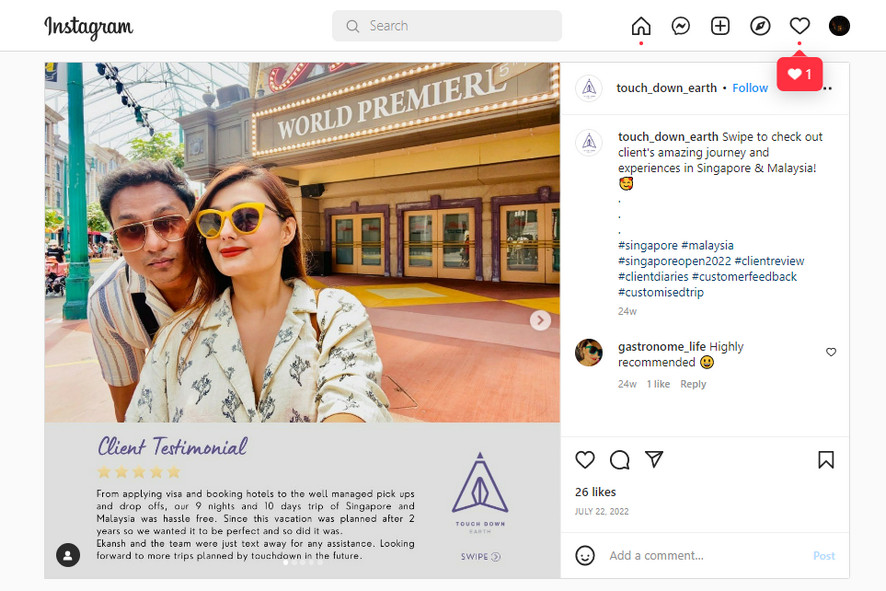
Tip #5: Utilize paid advertising
Paid ads come in many forms, from static images and videos that show off a destination to carousel ads that let users quickly scroll through different travel packages. It’s important to keep running the kinds of campaigns that get the most attention.
Here’s a quick rundown of the main types of social advertising campaigns and what they offer:
- Video advertising is a great way for businesses to show off their creative sides and keep people’s attention for longer. This kind of advertising is especially good for travel agencies that want to highlight a specific destination and really sell the idea of a vacation package or location.
- Carousel ads are another good choice for travel companies that want to show off several different vacation packages and deals at once. By swiping through the carousel, customers can easily see all the choices and find the best one for their needs.
You can also be creative and try to tell a story about a certain destination to get people even more excited about it. - Adding static images to your posts is the last thing on this list. This is a good way to get the word out about any deals or packages you’re offering.
For example, if you’re using Instagram to promote a travel package, you can include details like prices, what’s included, and more.
Tip #6: Analyze and adjust your strategy
How will you measure how well you’ve done? What needs to change in your plan for you to reach your goals?
Engagement is the key to figuring out how successful the travel agency ad was when it comes to analyzing. By keeping track of a number of metrics, you can get a good idea of how well your audience interacts with your content and how effective your campaigns are.
High engagement rates show that your audience is healthy and interested in what you have to say.
Some of the different metrics you should look at to measure engagement are:
- Depending on the platform, the number of likes, comments, and retweets you get on a post can vary.
- To figure out how many people engaged with a post, divide the number of engagements by the number of times each post was seen.
- Your click-through rate is closely tied to how many clicks you get. This metric shows how often your travel content gets clicked on.
No social media marketing plan is perfect, of course, and that’s fine.
As you put your plan into action and keep track of your progress, you may find that some of your strategies aren’t as useful as you thought at first, while others are working even better than you thought they would. So, to get the best results for your business, it’s important to test and improve your strategy all the time.
Overall, there are three important things that every travel agency should remember: be real, find ways to add value, and if you’re not sure what to do, guess, test, measure, and learn.
Final takeaways
The social media world is growing quickly, and almost everyone in the world uses at least one social media platform. Your travel agency should also be on social media because of this. It is a powerful tool for building a business, but you have to do it the right way for it to work.
In the end, putting up regular posts about your travel agency’s website on social media can help you reach more potential customers and get more bookings. Social media marketing can help your business succeed if you know who your audience is, use the best platforms, post interesting content, interact with your followers, and use paid advertising.
We hope you were able to find the tips you were looking for and that you were able to use them on your travel agency website. Please feel free to contact us at Traveler if you have any questions!
